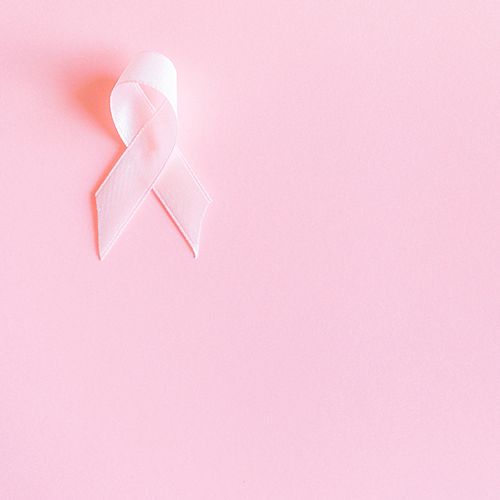Radiation, chemotherapy and surgery are widely known to be the main treatments for cancer. But to fight the disease more effectively and to maximize the odds of recovery, doctors and patients are increasingly turning to integrative oncology.
This approach combines the conventional treatments mentioned above with natural or alternative treatments that can minimize the complications and side effects from cancer treatments, help relieve pain and improve overall health, increasing chance of survival.
Isaac Eliaz, an integrative physician, shared integrative treatments that scientific studies and his clinical experience show are likely to be effective for a wide range of cancer patients…
Exercise
Research shows that cancer patients who walked three to five hours a week improved their outcomes, compared with cancer patients who didn't exercise.
My advice: Try to exercise every day. Walking is usually best-it's easy to do on a regular basis and is proven to work. Other helpful exercises include yoga, tai chi and qi gong, all of which stretch and strengthen muscles, relax the body and even improve immunity.
Caution: Too much strenuous exercise can produce inflammation, thought to be a factor in cancer development, and cause wear and tear on the body. Do not exercise to the point of exhaustion.
Stress Management
Stress management is essential for cancer patients-stress, anxiety and even pessimism weaken immunity and may spark inflammation, possibly spurring the progression and aggressiveness of cancer. In my clinical experience, cancer patients who practice stress management often have better outcomes than those who don't.
Recent finding: Women with breast cancer who practiced mindfulness-based stress reduction, including meditation, indicated that they were better able to cope with stress, anxiety and panic, were more confident and had improved personal relationships, reported researchers in Complementary Therapies in Clinical Practice.
My advice: Regular meditation-even 10 minutes a day-is a proven stress-reduction technique with results comparable to or better than antidepressants and antianxiety medications. Strong social support and social networking also can reduce stress and improve outcomes in cancer patients. Creative outlets-such as drawing or painting, writing, playing an instrument and dancing-also help ease stress and improve emotional well-being.
Diet
Dietary needs vary from patient to patient. For example, some cancer patients may require a high-protein diet (those who are weak), while others may need a diet emphasizing plant foods (those who are overweight). But all cancer patients should follow these essential basics…
A low-glycemic diet that minimizes or eliminates refined carbohydrates such as sugar and white flour, both of which fuel inflammation and may promote the growth and aggressiveness of tumors...and avoidance of processed trans fats and fried foods, which spur inflammation and damage DNA. Also, eat as much organically grown food as possible—it's free of synthetic pesticides, many of which are linked to cancer in humans...and drink eight eight-ounce glasses of filtered water every day to stay hydrated and eliminate toxins.
Supplements
Here are four supplements that research and my own clinical experience confirm are uniquely effective for cancer-all are available at health-food stores, well-tolerated and safe for adults, the elderly and children…*
- Honokiol. This extract from the bark of the magnolia tree interferes with the growth and spread of cancer and can increase the effectiveness of chemotherapy and radiation. Studies have shown that honokiol may be useful for many types of cancer, including leukemia and cancer of the brain, breast, bone, colon, pancreas, skin and stomach.
- Artemisinin. The herb Artemisia annua (commonly called sweet wormwood) is as powerful as quinine in treating malaria. Recent research shows that artemisinin, a compound derived from the herb, has strong anticancer effects, reducing tumor size and blocking metastases.
- Modified citrus pectin (MCP). This substance, derived from citrus fruit peels and apples, controls galectin-3, a protein linked to cancer formation and metastases. MCP also boosts the immune system and safely removes heavy metals and other toxins from the body.
Recent research: Combining MCP with chemotherapy was more effective in killing prostate cancer cells than chemotherapy alone, reported researchers in Cell Biology International.
- Mushroom extracts. Extracts from medicinal mushrooms such as coriolus, reishi, cordyceps, maitake and shiitake can boost immunity...improve digestion...increase energy ...and help prevent side effects from chemotherapy and radiation as well as improve their effectiveness.
Standout scientific evidence: In a study of patients who had undergone surgery for liver cancer, those who took active hexose correlated compound (AHCC), an extract of shiitake, had a longer time to recurrence and a higher survival rate.
*Consult an integrative physician before taking any of these supplements. He/she can advise you on the best supplements for your cancer, dosage and possible side effects. Inform your doctor of all drugs/supplements you are taking to avoid possible interactions.
Acupuncture
Acupuncture can help cancer patients in many ways, including providing relief from pain and nausea. It also has been shown to reduce inflammation and boost immune function.
Recent research: In an analysis of 15 studies on acupuncture published in Supportive Care in Cancer, researchers found that combining acupuncture with drug therapy was 36% more effective in relieving pain in cancer patients than drug therapy alone.
To find an integrative physician: Online, go to Cancer Decisions (www.cancerdecisions com), and click on "Professional Associates"...or go to the Society for Integrative Oncology (www.integrativeonc.org).
